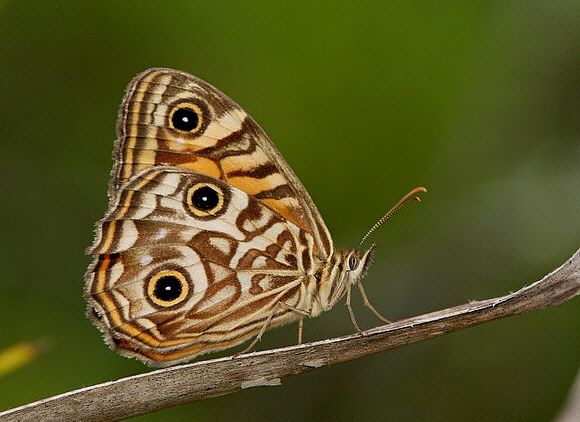
Introduction
There are 3 currently recognised Geitoneura species – acantha, klugii and minyas, all of which are endemic to Australia. The three species all have similar Heteronympha-like patterns on the upper surface but are easily distinguished from Heteronympha and from each other by differences on the undersides.
Geitoneura acantha occurs in southern Queensland, New South Wales, Victoria and South Australia.
Habitats
This species inhabits grassy clearings and glades at elevations between about 200-1500m.
Life Cycle
The egg is smooth, globular and cream in colour. It is laid in groups on the blades of grasses such as Microlaena, Poa and Themeda ( Poaceae ). The larva is bright green with a pair of pale subdorsal stripes, a dark green mid-dorsal line, and a brown head with prominent knobby head horns. The pupa is brown with dark markings. It is suspended by the cremaster from a stem.
Adult Behaviour
The adults rarely visit flowers and are more commonly observed at rest in the ground or among grasses.
